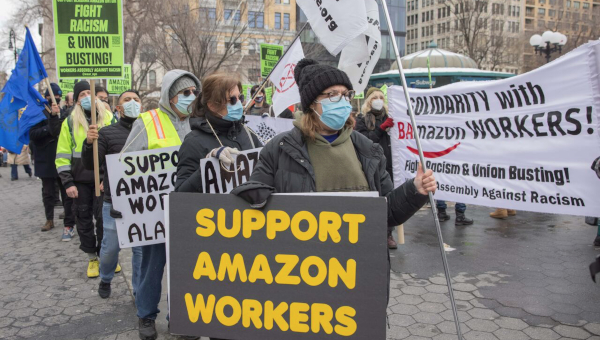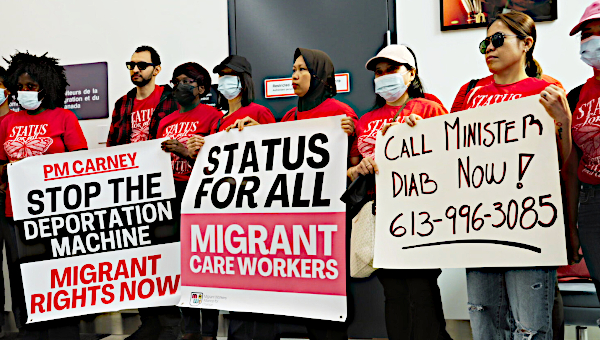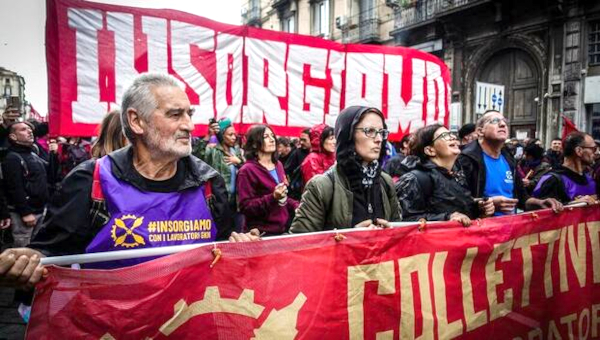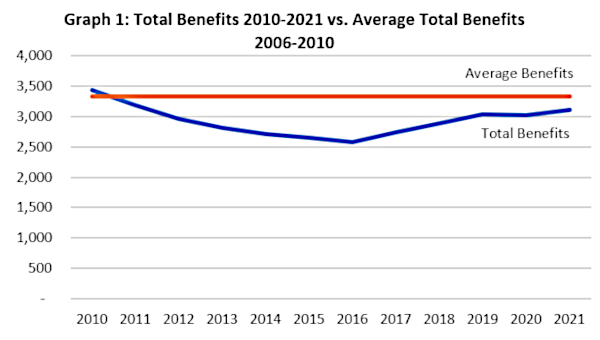Protecting the Right to Protest and Picket
In Toronto and York Region, we are witnessing an alarming rise in anti-democratic, anti-worker motions being introduced by municipal Councillors. Using various pretexts, members of council in Toronto and York Region municipalities are moving motions which seek to limit the charter protected rights of free expression and free assembly. In particular, these motions use the spectre of public safety to crack down on protests which disrupt “critical infrastructure,” a dog whistle for anti-union interventions from government.
Over the last several months, we have seen a dramatic rise in protests across the country to decry the escalating violence in Israel-Palestine, and to call for an end to the blockade and to send immediate aid to the people of Gaza. The Toronto & York Region Labour Council has supported the calls made by trade unions and working people across the world to take drastic action toward an immediate ceasefire, for aid, and an end to the blockade.
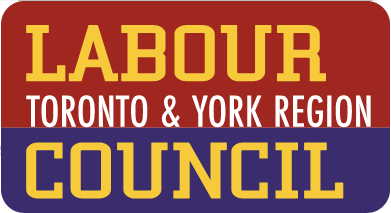
Overwhelmingly, the countless actions which have taken place in Toronto and York Region have been peaceful assemblies of working people urging the government to take action and oppose the ongoing violence. This mass movement of working people has made gains, with Parliament passing a motion on March 18th for a ceasefire, a restoration of humanitarian aid to Gaza, and an embargo on arms sales to Israel.
While these demonstrations have overwhelmingly remained peaceful, members of councils in Toronto and in York Region have highlighted the infrequent disturbances during the protests, along with a rise in hate crimes, particularly Islamophobic and anti-semitic hate crimes, as motivation for their by-laws. The Toronto & York Region Labour Council unequivocally condemns racism, discrimination, antisemitism, Islamophobia, hate, and all forms of oppression and exploitation, as it has through many years of its struggle for a better city, and a better world. Urgent action must be taken by all to end hate in all its forms.
Nonetheless, we reject the move to stifle and restrict charter protected rights which have been fought for by working people over centuries. It is worth noting that the activity the police and politicians have been fear mongering around is already illegal; harassment, destruction of property, violence, hate, and so on. It is because these protests have been peaceful and lawful that they seek to expand their powers. Granting extra powers to police and by-law officers will not serve to protect working people from activity which is already illegal, instead it will only serve to undermine and weaken Canadian democracy.
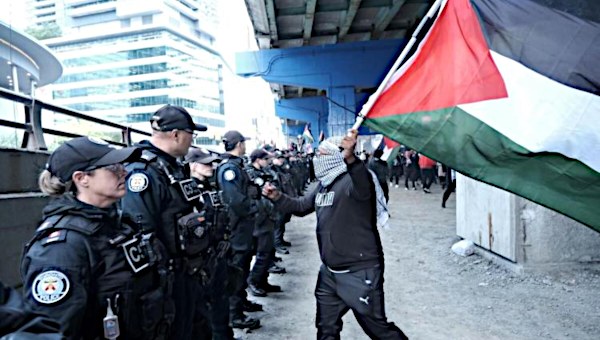
It is no coincidence that expanded calls for protecting “critical infrastructure” comes after a high-water mark for militant trade union activity in 2023. Responding to a cost-of-living crisis which has gripped working people across the country, and seeing their real-wages and living standards decline, workers struck back.
Across the country, strikes shook employers who remained obstinate in addressing workers’ growing concerns. In 2023, we saw the largest single employer strike in Canadian history with the PSAC strike; one of the largest general strikes in Canadian history with the Common Front in Quebec; and there were also militant walk outs ranging from dozens to thousands of workers in the logistics industry, manufacturing, the service sector, healthcare, and education, among others. In all, working people went out for more than 2,225,000 working days in 2023, shattering the trend for the prior decade.
Working people’s unwillingness to accept less than they are worth has led to a renewed push to attack the labour movement and weaken labour rights across the country. This push comes in the form of both legal and extra-legal interventions intended to hamper union organizing, activity, and, particularly, weaken the strike as a viable tactic.
Legislation of this type has been used to attack labour in Toronto & York Region recently, as well as across the province, and country. In Toronto, there have been motions in council to review and expand the system of monitoring and policing protests in the city, in particular by James Pasternak, no friend of working people; in Vaughan, a motion from Steven Del Duca, which limits the ability to protest in certain areas, including schools and other pieces of “critical infrastructure”; in Black River-Matheson, all members of CUPE in Canada were served a trespass notice to try and smash the lawful strike of municipal workers in the city; and in Ottawa, by-laws have been arbitrarily enforced to intimidate and restrict the rights of working people to protest.
Stifling democracy is the purpose of these legislative attacks stacking up across the country, and some of the most vicious are coming from the Ford Government, with the recent bills 124 and 28 representing what’s to come – a serious attack on workers rights. Both bills were found unconstitutional, and many others are being challenged in court right now.
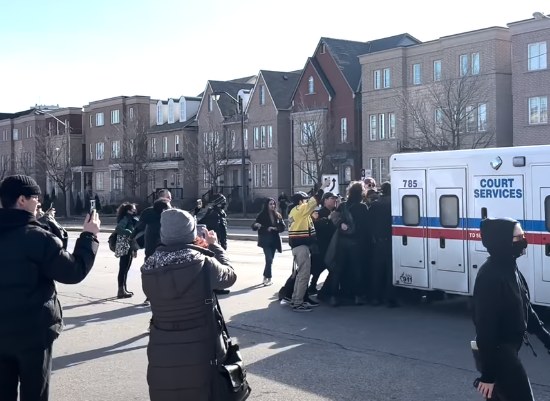
Worse yet, these legislative attacks on working people have risen in parallel to an absolute, and often violent, crackdown from the police on peaceful protest and strike activity. In Toronto, this crackdown has manifested in the intimidation and arrest of lawfully striking CUPE 3903 members who were exercising their right to strike and picket at the same locations they have for over 20 years, as well as the widespread crackdown on and brutalization of Palestinian solidarity activists in the city. These escalations are not a coincidence, and the police response foreshadows the new world legislative attacks of working people seeks to build.
While it is likely that, similar to other recent attempts to restrict the rights of working people, these by-laws being passed and reviewed by councils in Toronto and York Region would be found unconstitutional, they nonetheless represent a serious affront to working people everywhere. These rights were won through hard fought struggles from working people over many years, and the Toronto & York Region Labour Council stands firmly and resolutely in defence of them.
We also stand in defence of these rights for groups legally protesting on other issues, including the situation in Israel-Palestine.
The Labour Council resolves to:
- Call on all of its affiliates to vigorously oppose legislative attempts to limit the right to demonstrate, protest, rally, and strike.
- Demand members of council withdraw motions which seek to limit protected charter activity and seek no further avenues, legal or extra-legal, to restrict charter rights.
- Reiterate our call for an immediate ceasefire in Israel-Palestine and a negotiated solution to the conflict. •


